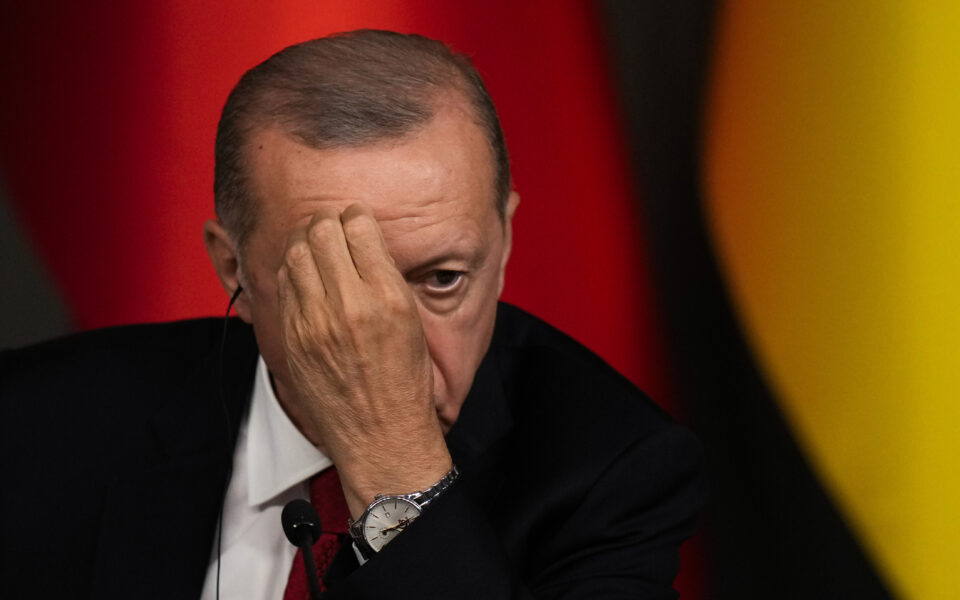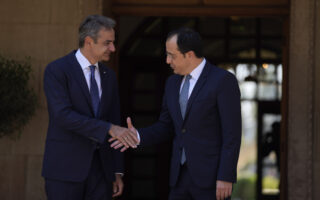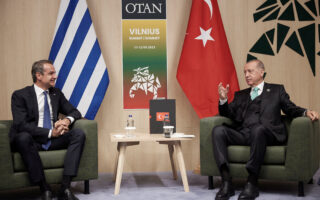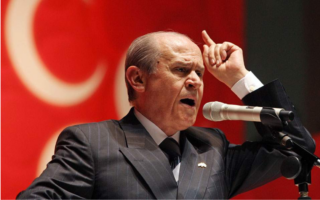Erdogan rhetoric indicative of difficulties ahead

The hostile comments by Turkish President Recep Tayyip Erdogan on Thursday marking Turkey’s “Victory Day,” the anniversary of the defeat of the Greek forces in Asia Minor in 1922, are indicative of the difficulties that exist by definition in Greek-Turkish relations.
Although the statements have caused dismay in Athens, they came just days before the meeting of Foreign Ministers George Gerapetritis and Hakan Fidan in Ankara on September 5.
“Hostile statements are counterproductive and do not contribute to the consolidation of the climate of calm, cooperation and dialogue that is being attempted to be built in Greek-Turkish relations in the current period,” the Greek Foreign Ministry said.
According to Kathimerini’s Istanbul correspondent Manolis Kostidis, Erdogan said, among other things, that “our heroic army destroyed the enemy’s fronts, and on August 30 it broke a large part of the Greek invasion forces and opened the road to Izmir.”
“Fifteen days after the beginning of the ‘great offensive,’ Turkish flags were flying in Izmir [formerly known as Smyrna], which had been destroyed and burnt by the enemy who had fled. And so we won the war with battles fought for three and a half years against the enemy, who with his treacherous ambitions and his dirty boots, stained our permanent homeland Anatolia,” Erdogan said.
It would obviously be impossible for any Turkish leader to avoid making statements on a day that has historical significance for the neighboring country, as it was one of the first episodes of the establishment of the modern Turkish Republic, but choosing such aggressive characterizations at a time when efforts are being made to find some common ground between Athens and Ankara only aggravates the atmosphere.
It is also clear that in the case of Cyprus, Turkey is doubling down in favor of a two-state solution.
“We defend the rights and laws of our Turkish-Cypriot brothers and sisters in the Eastern Mediterranean to the end,” Erdogan said.





